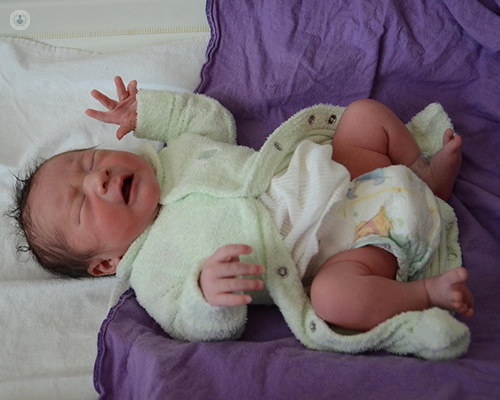


What are posterior urethral valves (PUV)?
Posterior urethral valves (PUV) are a congenital condition of the urethra (the tube that leads urine from the bladder out of the body) that only occurs in boys. Patients are born with the condition and are almost always diagnosed and treated as children, with some cases being diagnosed while the baby is still in the mother’s womb.
Patients with PUV have a blockage in their urethra close to the bladder, which makes it difficult for urine to pass, i.e. the individual has difficulty peeing.
The bladder contracts harder to push the urine out, but the resulting pressure can inadvertently push urine the other way, forcing it back up the ureters (tubes connecting the kidneys to the bladder). The bladder becomes swollen, and if the urine refluxes as far back as the kidneys, they too can become swollen (hydronephrosis), and this can result in kidney damage.
PUV occurs in around one in every 8,000 boys born.
Symptoms of posterior urethral valves
PUV can manifest in a number of ways, with different patients experiencing different symptoms and to different extremes – the severity varies according to the size of the blockage.
Potential symptoms include:
Unfortunately, these can by symptomatic of a number of problems, so the child should always be diagnosed by a doctor.
Medical tests to diagnose posterior urethral valves
Posterior urethral valves may be diagnosed before the baby is born if a routine ultrasound scan shows that it has a swollen bladder, ureters or kidneys. However, if it is not picked up on a scan, it may remain undiagnosed until the child starts showing symptoms, which could be shortly after birth or even years later.
Each case is different and the severity of the blockage and symptoms can affect how it is diagnosed. Typical tests include:
Other tests and scans may be performed to check that other parts of the urinary system are functioning as they should.
What are the causes of posterior urethral valves?
Posterior urethral valves form during the early stages of pregnancy. It does not appear to be connected to anything the mother does or eats while pregnant, nor does it seem to be inherited. It appears to simply be a malformation that occurs at random.
Treatments for posterior urethral valves
Treatment options depend on the severity of the symptoms.
Which type of specialist treats posterior urethral valves?
Paediatric urologists typically treat PUV.
